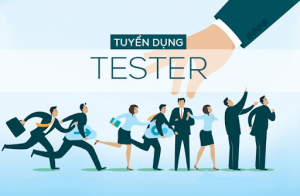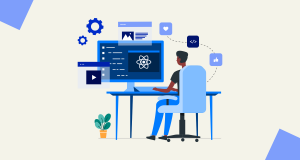Discover the top 10 emerging technologies that are revolutionizing software development, enhancing efficiency, and driving innovation in the industry.

The software development landscape is continuously evolving, driven by new technologies that enhance efficiency, improve collaboration, and enable innovative solutions. In 2025, several emerging technologies are set to shape the future of software development significantly. Here are 10 emerging technologies that are transforming the industry.
1. Artificial Intelligence (AI) and Machine Learning (ML)
Overview
AI and ML are revolutionizing software development by automating tasks, enhancing decision-making, and providing insights through data analysis. These technologies enable predictive analytics, natural language processing, and intelligent code completion.
Impact
- Automated Testing: AI-driven tools can automate testing processes, reducing time and effort while improving accuracy.
- Personalization: ML algorithms allow developers to create more personalized user experiences by analyzing user behavior and preferences.
2. Low-Code and No-Code Development
Overview
Low-code and no-code platforms enable users to build applications with minimal coding knowledge. These platforms use visual interfaces and pre-built components to streamline the development process.
Impact
- Rapid Prototyping: Developers can quickly create prototypes and iterate based on feedback, speeding up the overall development cycle.
- Increased Accessibility: Non-technical stakeholders can contribute to application development, fostering collaboration between technical and non-technical teams.
3. Blockchain Technology
Overview
Blockchain technology offers a decentralized and secure way to store and manage data. It is increasingly being used in various applications, from finance to supply chain management.
Impact
- Enhanced Security: Blockchain’s cryptographic features ensure data integrity and security, making it ideal for applications requiring secure transactions.
- Smart Contracts: Developers can create self-executing contracts that automatically enforce agreements without intermediaries.
4. Internet of Things (IoT)
Overview
The IoT refers to the network of interconnected devices that communicate and exchange data. This technology is transforming how applications are built, especially in sectors like healthcare, manufacturing, and smart homes.
Impact
- Real-Time Data: IoT enables the collection of real-time data, allowing developers to create applications that respond dynamically to changing conditions.
- System Integration: Developers can build applications that integrate with various IoT devices, enhancing user experiences and operational efficiency.
5. 5G Technology
Overview
5G technology promises faster data transfer speeds, lower latency, and improved connectivity. This technology is set to enhance mobile applications and services significantly.
Impact
- Enhanced User Experiences: 5G enables seamless streaming, real-time gaming, and improved AR/VR applications, transforming user interactions.
- IoT Expansion: The increased bandwidth and connectivity of 5G support the growth of IoT applications, allowing for more devices to be connected simultaneously.
6. Edge Computing
Overview
Edge computing involves processing data closer to the source rather than relying on centralized data centers. This technology reduces latency and bandwidth use, making it ideal for applications requiring real-time data processing.
Impact
- Improved Performance: Edge computing enhances application performance by reducing latency, making it suitable for time-sensitive applications like autonomous vehicles and smart cities.
- Data Privacy: By processing data locally, edge computing reduces the need to transmit sensitive information over the internet, enhancing data security.
7. DevOps and Continuous Integration/Continuous Deployment (CI/CD)
Overview
DevOps practices emphasize collaboration between development and operations teams, promoting a culture of continuous integration and deployment.
Impact
- Faster Releases: CI/CD pipelines automate testing and deployment processes, allowing for faster and more reliable software releases.
- Improved Collaboration: DevOps fosters a culture of collaboration, breaking down silos between teams and improving communication.
8. Quantum Computing
Overview
Quantum computing leverages the principles of quantum mechanics to perform complex calculations at unprecedented speeds. While still in its infancy, it holds the potential to revolutionize software development.
Impact
- Complex Problem Solving: Quantum computing can solve problems that are currently intractable for classical computers, opening new possibilities in fields like cryptography and optimization.
- Algorithm Innovation: Developers will need to create new algorithms designed specifically for quantum computing, reshaping how software is built.
9. Augmented Reality (AR) and Virtual Reality (VR)
Overview
AR and VR technologies are transforming user experiences by blending digital content with the real world or creating immersive virtual environments.
Impact
- Enhanced Training: AR/VR applications are being used for training simulations, providing immersive experiences that improve learning outcomes.
- Interactive Applications: Developers can create interactive applications that engage users in new and innovative ways, from gaming to virtual showrooms.
10. API-First Development
Overview
API-first development focuses on designing and building APIs before developing the application itself. This approach ensures that APIs are robust and versatile, allowing for easier integration with other services.
Impact
- Faster Development: An API-first approach accelerates development by enabling teams to work in parallel on different components of the application.
- Scalability: Well-designed APIs allow for easier scalability and integration with third-party services, enhancing overall application functionality.
Conclusion
Emerging technologies are reshaping the landscape of software development, offering new opportunities and challenges. By staying informed about these trends, developers can leverage innovative tools and methodologies to create more efficient, secure, and user-friendly applications. Embracing these technologies will be essential for businesses looking to thrive in the ever-evolving tech landscape.
👉 Ready to explore how these emerging technologies can enhance your software development projects? Contact us today to learn more!
🌐 Website: [Tinasoft]
📩 Fanpage: Tinasoft Vietnam













